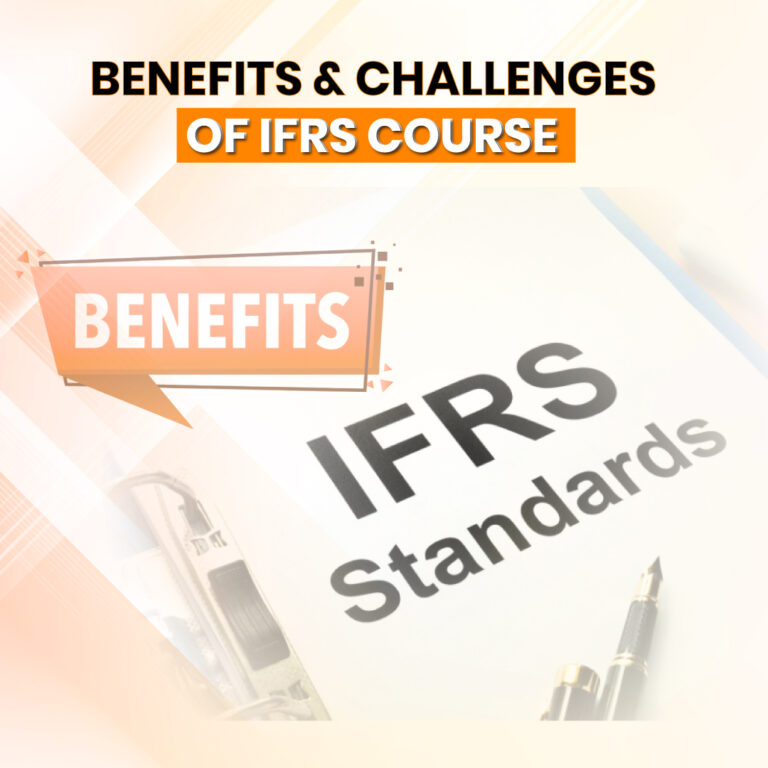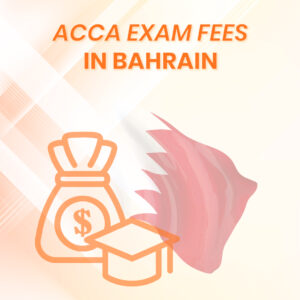“NAVIGATING IFRS CERTIFICATION IN THE UAE: KEY BENEFITS AND COMMON CHALLENGES”
The need for IFRS certification in the UAE has been growing over time, as the implications of International Financial Reporting Standards have become significant to survive in the UAE’s business and financial landscape. Investors and stakeholders demand that UAE organizations/firms align their business practices with such global reporting standards to maintain transparency, credibility, and allow access to international markets. In such a scenario, where the demand for proficiency in understanding and implementing IFRS is much higher, it is best for finance professionals to equip themselves with this skill as well. It is safe to say that a good understanding of global reporting standards is no longer a choice but a need to stay competent in the UAE’s financial job market.
Financial aspirants or professionals can stay competent and have a progressive career by availing IFRS certification in the UAE; this certificate is quite insightful and can add much value to their work profile. Are you still confused whether or not to opt for this value-added certificate? No worries, through this guide you can explore all the benefits and challenges of IFRS certification and then decide whether or not you want to choose this path.
BENEFITS OF IFRS CERTIFICATION IN UAE:
There are numerous benefits of having an IFRS certification in the UAE, some of which are discussed below:
1: CAREER ADVANCEMENT AND HIGHER SALARIES:
By choosing this certificate, you are adding a valuable skill to your skillset; this skill is highly in demand, hence, it leads to a progressive career and a high potential salary package. The importance of this credential can be measured by the fact that professionals usually obtain this certificate to get career advancement; in simpler words, this certificate allows you to have access to better roles.
2: PROFESSIONAL CREDIBILITY:
In the financial sector, where credibility and transparency matter a lot, this certificate can enhance your professional credibility. This globally recognized certificate allows professionals to do cross-border transactions, group reporting, etc, indicating your competence in international standards.
3: ENHANCED GLOBAL EMPLOYABILITY:
Employers seek and value professionals with such globally acknowledged additional certificates; hence, it makes your professional profile attractive and enhances your employability in the local as well as global market. Finance professionals looking forward to having increased career opportunities should consider availing the IFRS certification in the UAE.
CHALLENGES OF HAVING IFRS CERTIFICATION IN UAE:
While this certificate is opening the door to numerous opportunities and career benefits, it also has a few challenges and difficulties. Some of which are discussed below:
1: KEEPING UP WITH CHANGES:
IFRS standards are ever-evolving; they keep changing according to the needs and demands of the global financial sectors. Therefore, having a certificate isn’t just enough for professionals to stay current with any changes and updates made in these standards to stay competent; they must keep an eye on any changes made.
2: EFFORT AND TIME:
Understanding IFRS standards should not be taken lightly; these standards are complex and require serious effort and time to get clarity. Hence, this can be burdensome for some aspirants, especially for those who are already stuck with other academic or professional commitments.
3: INCREASED COMPETITION:
As awareness about IFRS certification in the UAE and its impact on career prospects increases, the number of individuals interested in this certificate is increasing; this can reduce the job market’s competitive edge for professionals who already have this skill, as now employers will have more options (candidates) to select from.
CONCLUSION:
Therefore, one thing is clear: if you want to survive in the future of the UAE’s financial world, you need to equip yourself with a good understanding of IFRS. Professionals in this area are encouraged to obtain IFRS certification in the UAE and stay competent in the job market. The benefits offered by this certificate are proof of the value it can add to your professional profile; whereas, challenges are manageable with some extra efforts and consistency.
FREQUENTLY ASKED QUESTIONS (FAQs)
Q1: Is an IFRS certificate mandatory in the UAE to work as a finance professional?
Ans: No, it is not a mandatory requirement to have an IFRS certification in the UAE, but finance professionals are highly encouraged to obtain it if they are committed to building a success-driven future in finance.
Q2: What is the duration of completion of IFRS certification in the UAE?
Ans: If you are doing ACCA DipIFR, it usually takes around 3 to 6 months; it can, however, vary depending on the individual’s learning methods. Other short courses and workshops of IFRS can take multiple weeks or months to complete.
Q3: Which sectors or industries in the UAE value the IFRS certificate?
Ans: Employers from diverse backgrounds prioritize finance professionals with this certificate in the UAE; some of these employers are from multinationals, financial institutions, International trading companies, audit firms, etc.





